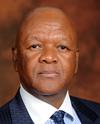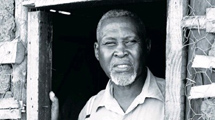 By Minister Jeff Radebe
By Minister Jeff Radebe
Chief Albert Luthuli, lionised as a visionary leader, dedicated his life to the liberation struggle, to free both the oppressed black majority and their oppressors from the shackles of ignorance and racist segregation.
Chief Albert Luthuli was a towering political giant who continues to loom large as a colossus in the history of South Africa’s liberation struggle.
Luthuli was a natural leader who straddled the social strata in an unconventional and unprecedented fashion. His leadership role in the church, education, traditional community and in the political landscape, is immeasurable. He was a man of principle and a leader of unquestionable integrity, who remained loyal and committed to the cause of freedom and justice. He saw no contradiction in serving as a traditional chief, on the one hand and as the leader of the ANC on the other.
In his seminal piece, The Road to Freedom is Via the Cross, published in his autobiography, Let My People Go, Luthuli describes his views and insights on leadership. “My view has been and still is, that a chief is primarily a servant of his people.”
It was Nelson Mandela who, during the Chief Albert Luthuli Centenary Celebrations in 1998, eloquently and befittingly described the role of leadership. “Real leaders must be ready to sacrifice all for the freedom of their people.”
It was in recognition of his unrelenting spirit, selfless dedication and his advocacy of peaceful means of the struggle that he became the first African to receive the Nobel Peace Prize. In his acceptance speech on December 11, 1961, he reiterated his commitment to peaceful means of the struggle.
“Our vision has always been that of a nonracial democratic South Africa which upholds the rights of all who live in our country to remain there as full citizens with equal rights and responsibilities with all others. For the consummation of this ideal we have laboured unflinchingly. We shall continue to labour unflinchingly.”
Luthuli remained true to these values and principles until his last breath on July 21, 1967. The dawn of the democratic order in 1994 was the fulfilment of Luthuli’s lifelong dream of a free and democratic South Africa.
Our transition from the apartheid state to a constitutional democracy represented the ultimate triumph of the human spirit after such a protracted struggle.
Our democracy was established on the bedrock of a constitution that guarantees human dignity and value for life. In his inaugural speech as the first president of the democratic South Africa in 1994, President Mandela stated emphatically that: “Never, never and never again shall it be that this beautiful land will again experience the oppression of one by another and suffer the indignity of being the skunk of the world.”
This was a timely statement to establish a solid foundation and set the tone for our new democratic order.
The statement found expression in the SA Constitution. It is coupled with the Bill of Rights that guarantees a nonracial, nonsexist and a democratic society where no one will be discriminated again on the basis of colour or creed.
The prescripts of the Constitution and the the Bill of Rights resonate with Luthuli’s firm convictions as well as the principles upon which the liberation struggle was conceived.
The onus is upon us all as South Africans to exploit the provisions of the Constitution to build a better world for ourselves and for future generations.
It is important to acknowledge that the legacy of apartheid is deeply entrenched in the various aspects of our lives.
The apartheid system did not only thrive through racial discrimination, its strategies permeated across racial, tribal and gender lines.
This poses a challenge for the current and future leaders of our society to cultivate a sense of nationhood, a sense of unity and a sense of common citizenship.
We must claim allegiance to the same flag, sing the same national anthem with devotion and vigour. We must have a single identity as South Africans.
This is the identity that the National Development Plan (NDP) seeks to foster.
The NDP envisions a society where South Africans will be more conscious of the things they have in common than their differences. It seeks to build a society where everyone is proud to call themselves South African.
Hate crimes such as the recent incident of the “coffin assault”, where two white men appear in a video recording assaulting a black man and forcing him into a coffin, go against our spirit of nation building and social cohesion.
They portray us as the “skunk of the world” that President Mandela spoke about so contemptuously in his inaugural address. These incidents, together with other discriminatory practises such as xenophobia, threaten to reverse the gains of our democracy.
As a qualified teacher who plied his trade for a period of 17 years, Luthuli was passionate about education.
In a paper entitled What I would do if I were Prime Minister, he made an elaborate argument about the importance of education.
He articulated his vision in the following words: “Education will be free and compulsory for all to the primary stage at first, and later up to matriculation. Substantial aid will be given to universities with a generous system for bursaries and loans to students.”
It is ironic that more than 50 years since Luthuli wrote this, it finds resonance with the discourse on education in our country today. I find solace in the realisation that we have already implemented some of the recommendations that Luthuli made in his seminal paper.
The current discourse on free higher education occurs against the backdrop of a myriad of government initiatives that are aimed at providing quality, affordable, may I add, decolonised education.
The best way we can pay tribute to Luthuli is by withholding and cherishing the spirit of freedom and democracy as guaranteed in the constitution.
He dedicated his life to the struggle for peace, equality and justice in our country as fundamental ingredients for the creation of a just and prosperous society. This is what Luthuli and many others sacrificed their lives and died for.
The life of Chief Luthuli should remind us that our freedom was not free!
Jeff Radebe is the Minister in The Presidency





